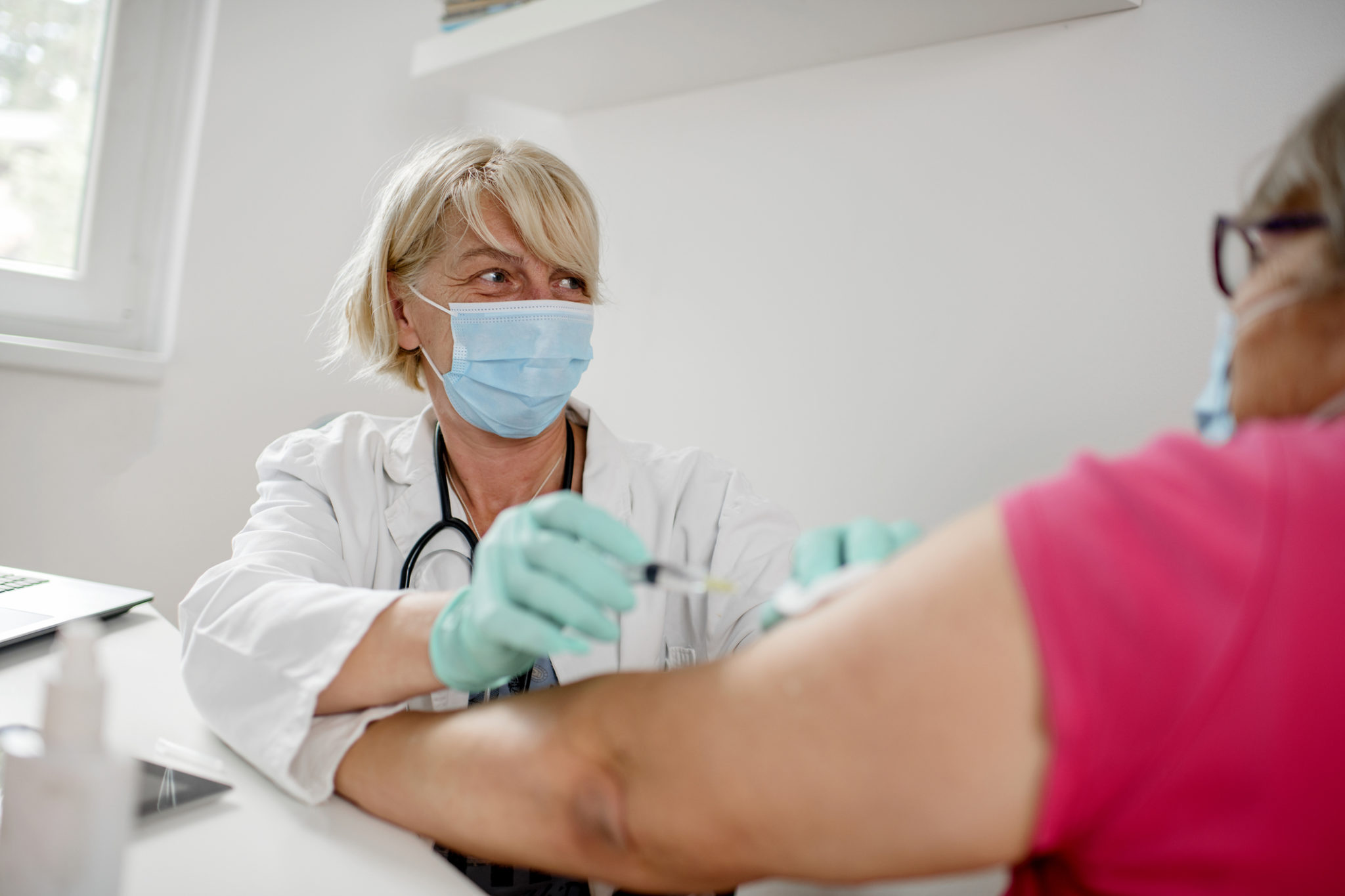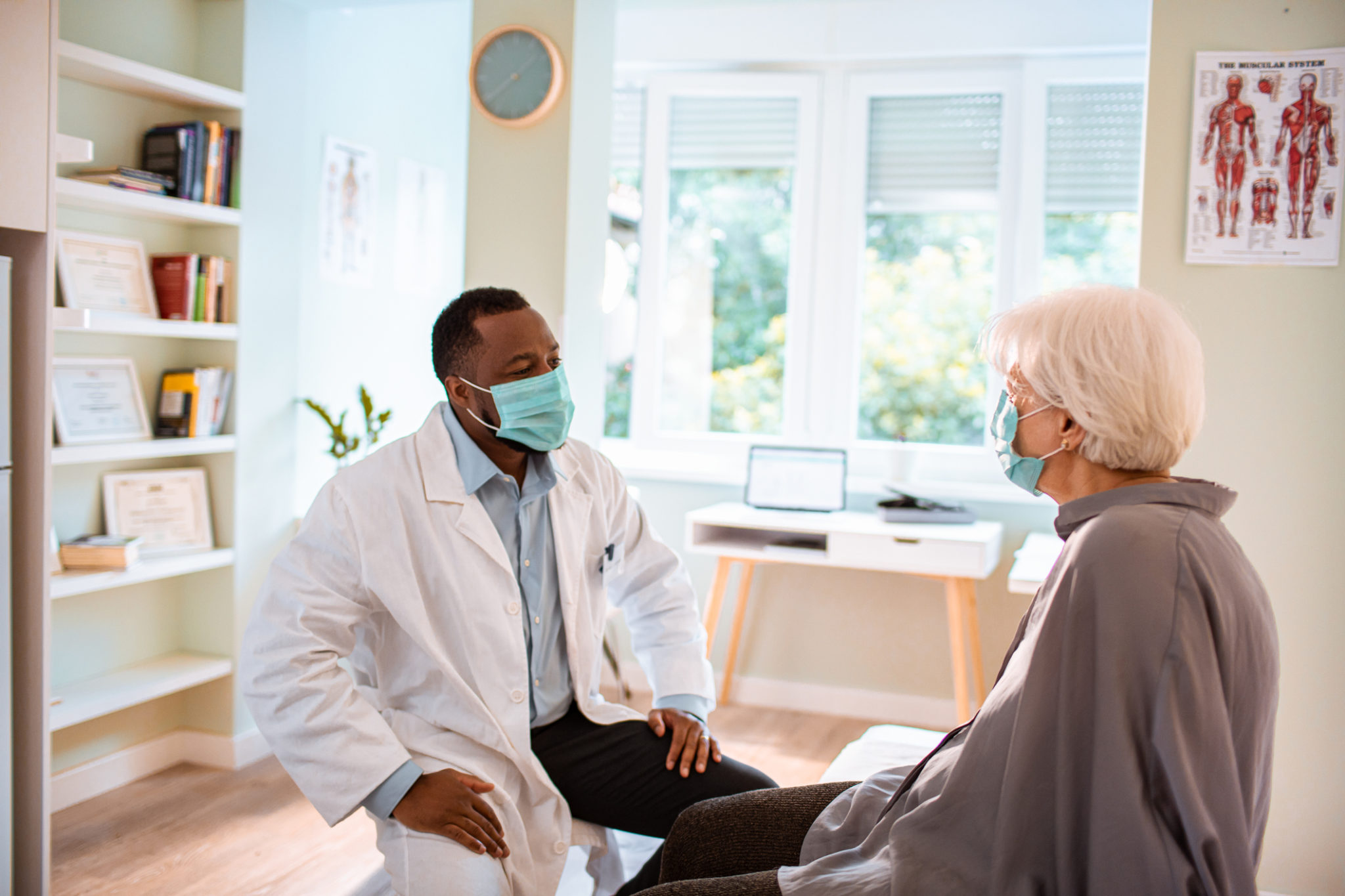Scared of Needles? These 6 Tips Can Reduce Your Fear

October 27, 2021
This fear may seem like kids’ stuff, but it can have a big impact on the health and well-being of adults as well - especially during a pandemic as we anticipate getting vaccinated when it is our turn.
Steps you can take to reduce your fear
Anticipating an injection may bring fear that makes teeth and muscles clench, causes rapid breathing, and elevates heart rate – these sensations can make it feel like a life and death scenario.
“It’s relatively common to be a little nervous before getting a shot,” says Douglas Saphier, M.D. triple board-certified psychiatrist at Hackensack University Medical Center, “Even in extreme cases, there are ways to reduce fear and anxiety around needles. This is especially important as we work towards getting people vaccinated against COVID-19.”
Some tips for easing the stress of injections include:
- Wear comfortable clothing, something with a short sleeve so you are ready to go when you arrive
- Bring a stress ball or something you can hold firmly (keys work great)
- Tell the clinician administering the injection your preferences – “I like to look away before the needle comes out”. “I prefer not to know the exact moment it happens”. “Please distract me with a tap on the shoulder”.
- Try some deep breathing exercises in the waiting room to calm down
- Skip the caffeine immediately before the appointment
- Remind yourself of a few other small things that cause more pain that you never worry about: a paper cut, stepping on a pebble on the beach, a splinter.
According to Dr. Saphier, “In most instances, if you step on a jagged pebble on the beach you will be in much greater pain than anything you will experience from an injection. The difference is that the pebble on the beach was unexpected.
Your mind had no opportunity to anticipate the pain and create stress and anxiety leading up to it.” He continued, “It if helps, grab a pebble from the beach or your yard, bring it to the vaccine appointment and clench it in your first prior to the injection. Visualize the pebble in your hand and the pain it would cause in your heel… and in that instant, the injection is over!”.
Vaccines, in particular, are critical to our health and society to overcome the COVID pandemic. Our fear of needles was part of growing up, and instead of focusing on the momentary pain, focus on the benefits that will follow.
The material provided through HealthU is intended to be used as general information only and should not replace the advice of your physician. Always consult your physician for individual care.
Find a doctor near me
Your Annual Checkup Is More Important Than Ever – Here’s Why

Throughout the past year, many have be diligent about hand-washing, mask-wearing and staying at least six feet away from people to stay as healthy as possible. But there’s one additional step that you should not skip: Seeing your doctor for your annual checkup.
How to Prepare for Your COVID-19 Vaccine

Prepare for your COVID-19 vaccine. Learn how to schedule your appointment, what to wear, and what to bring. Get vaccinated today.
